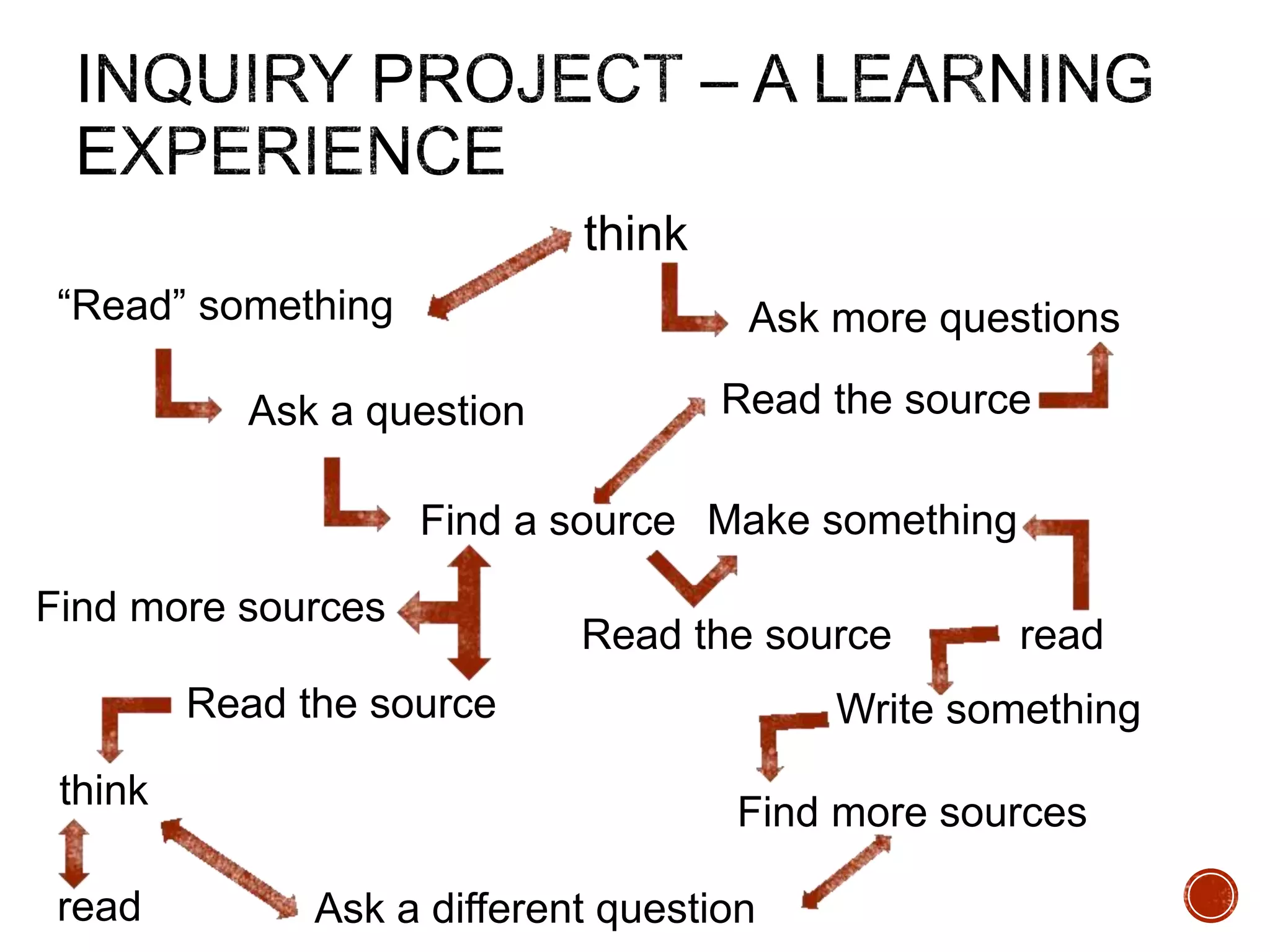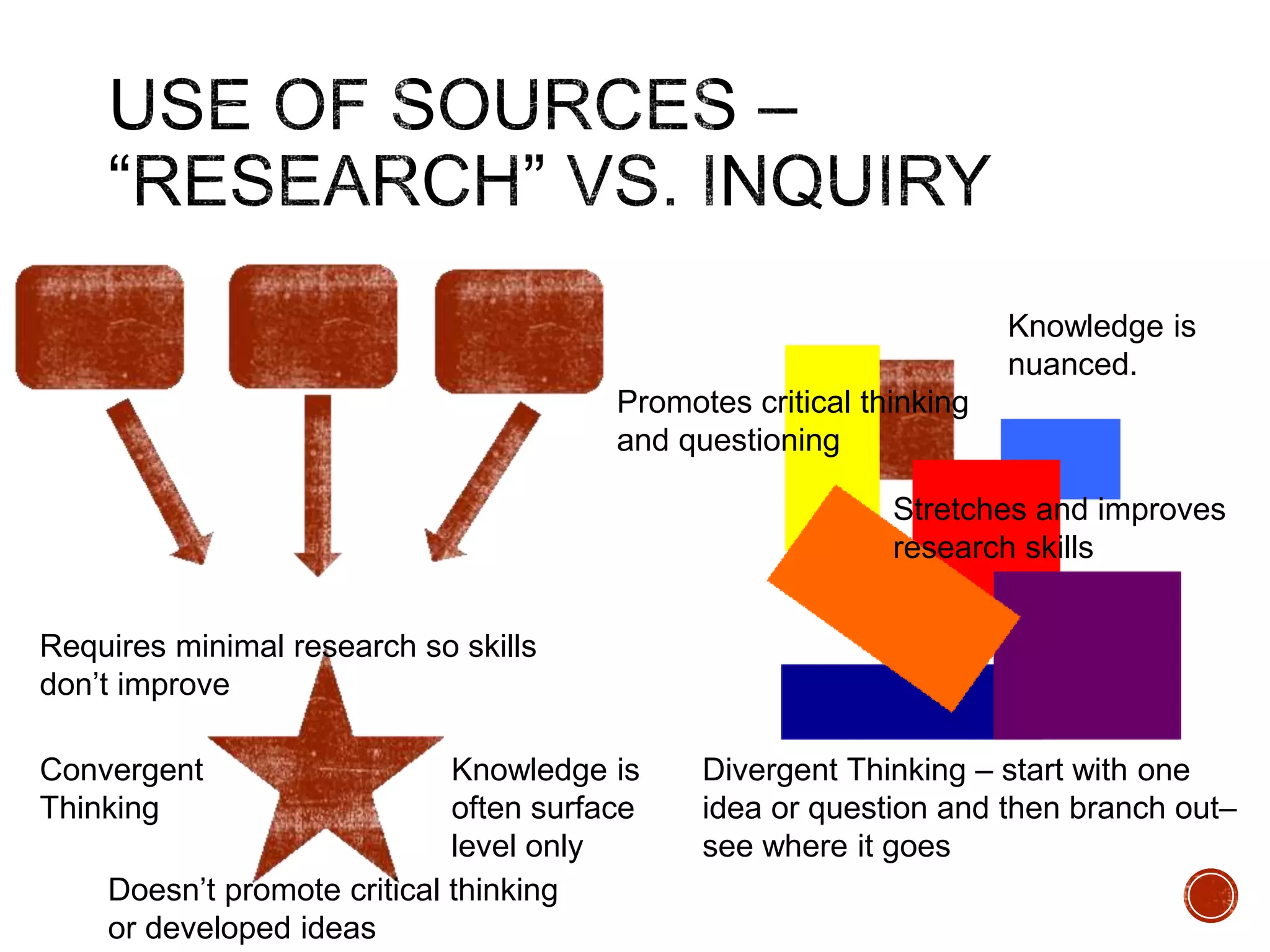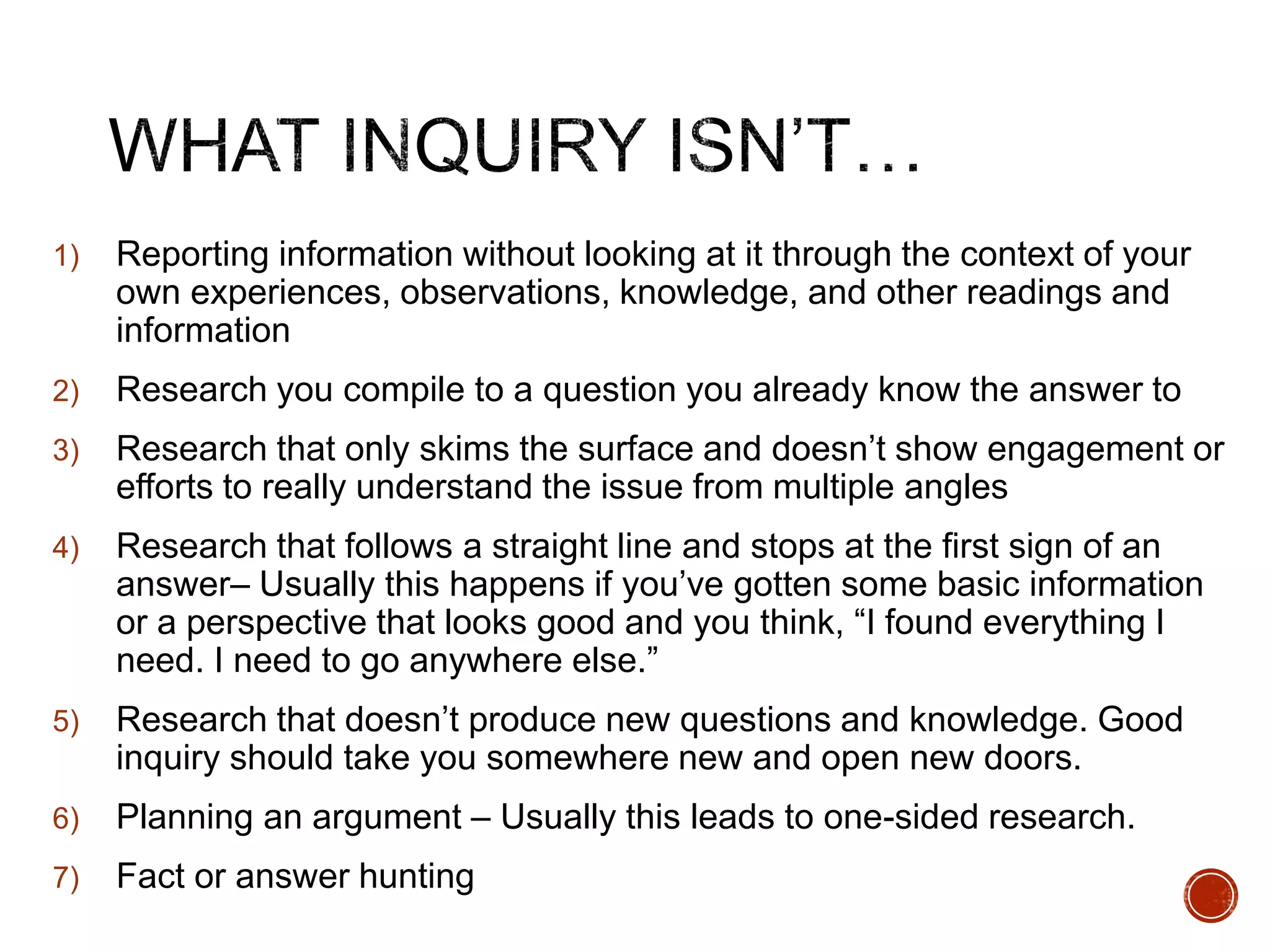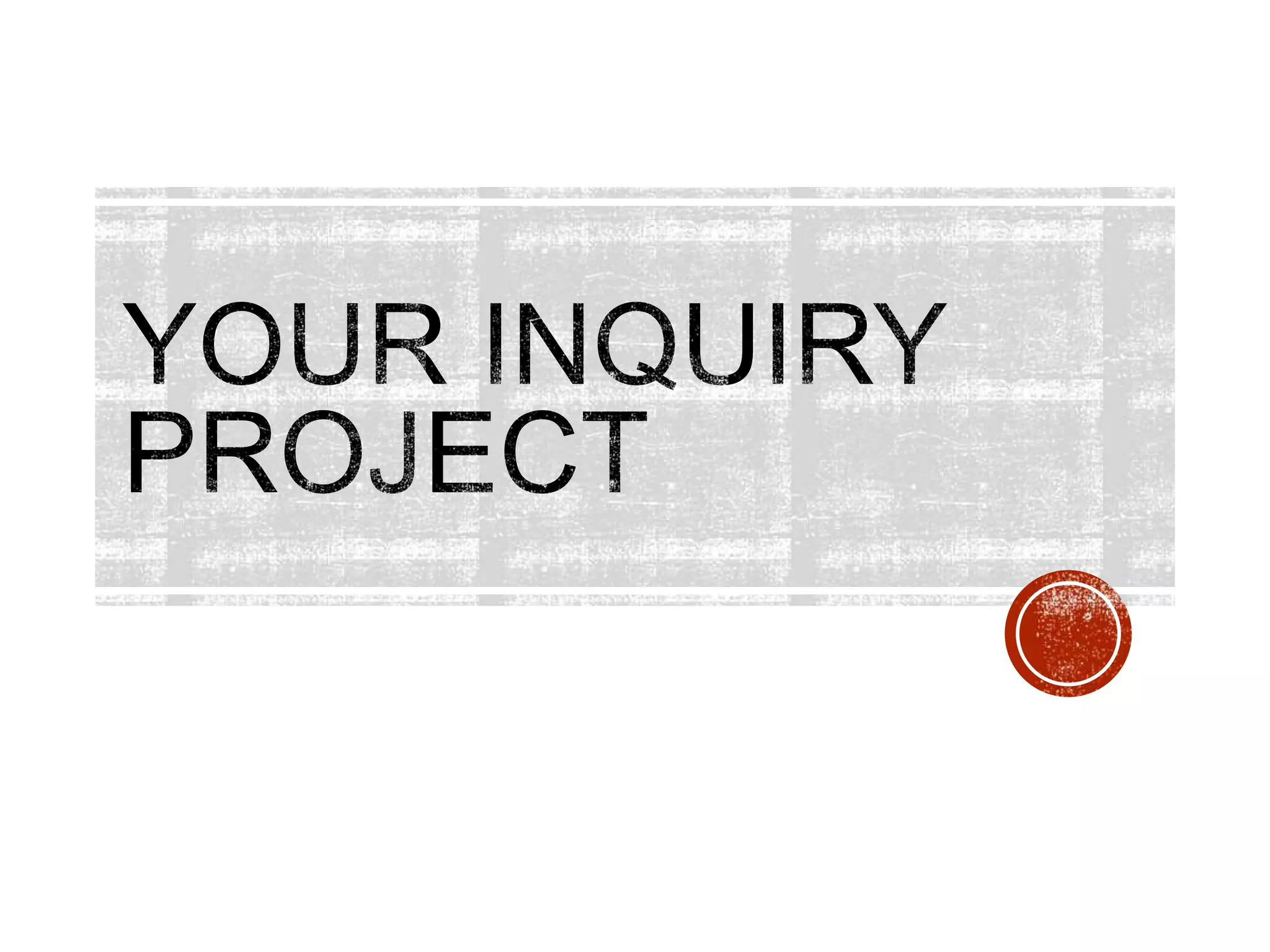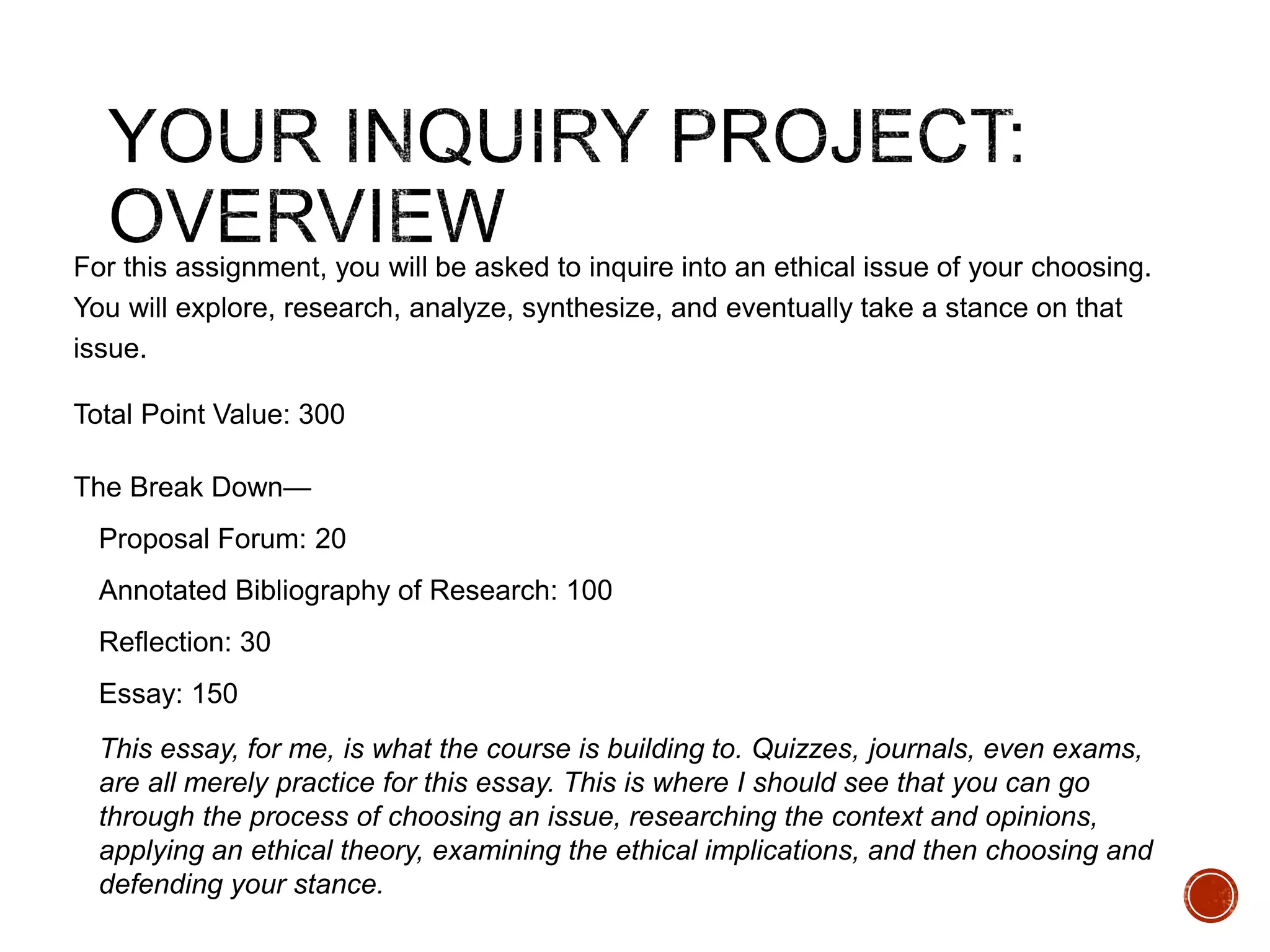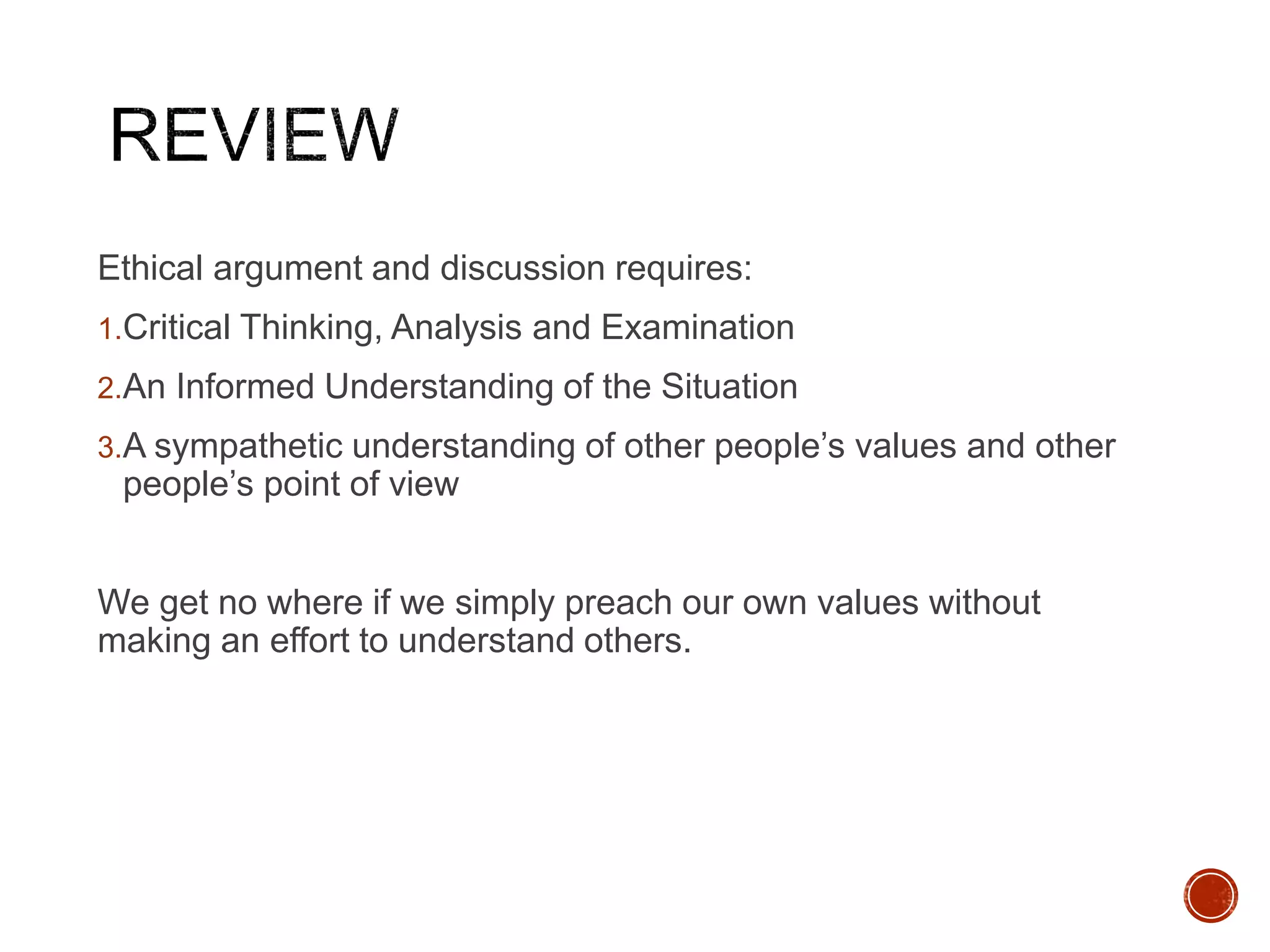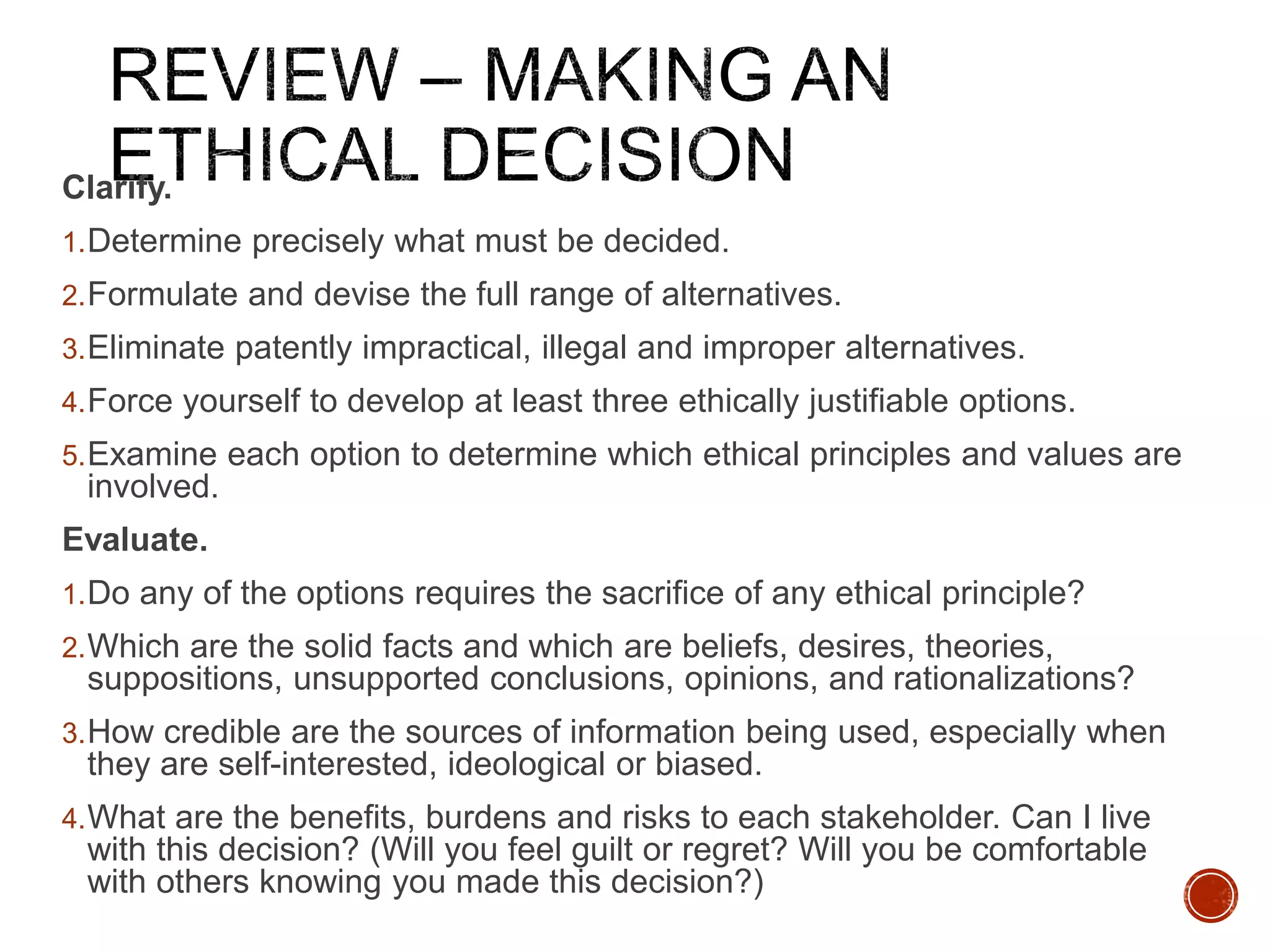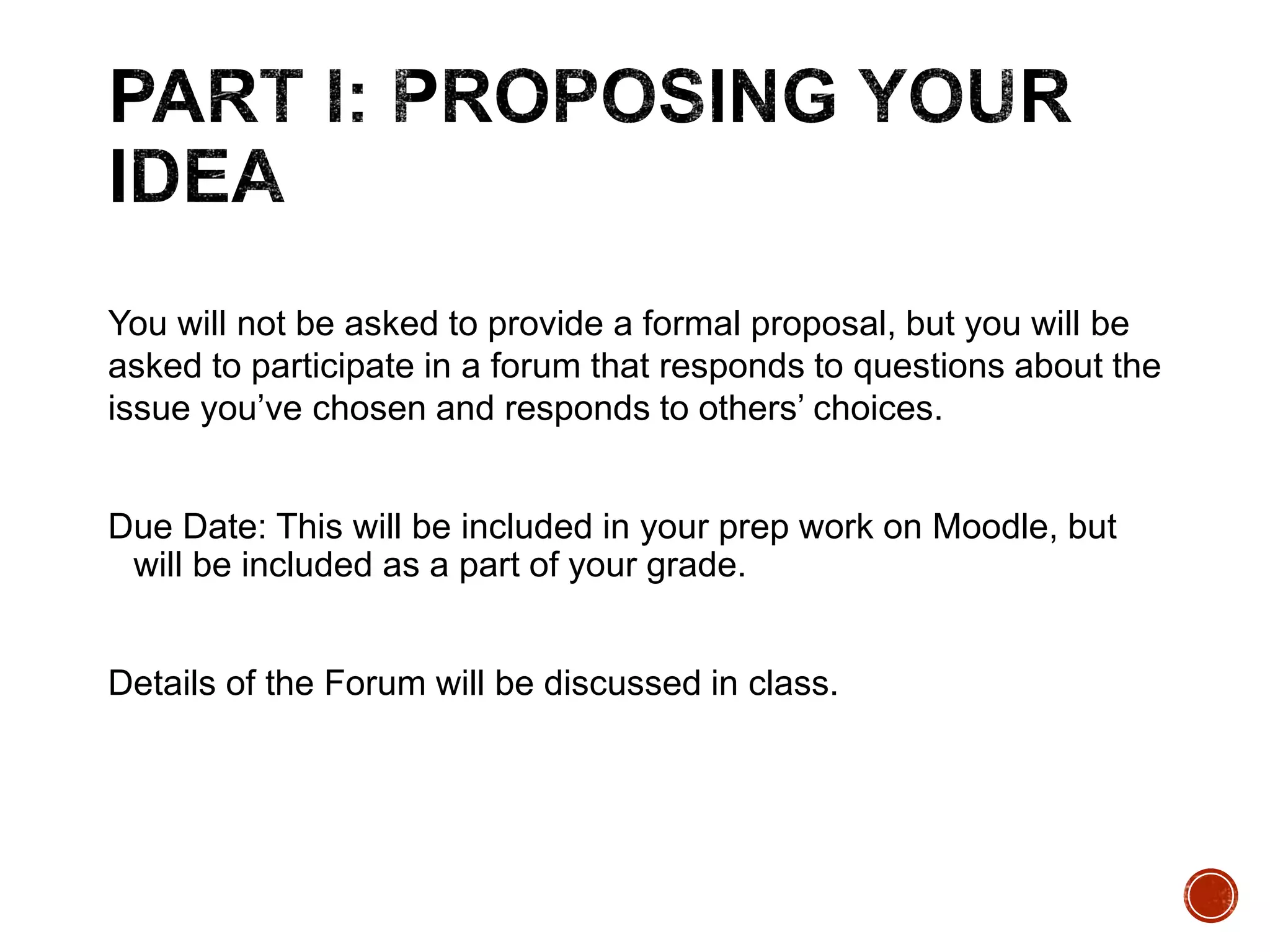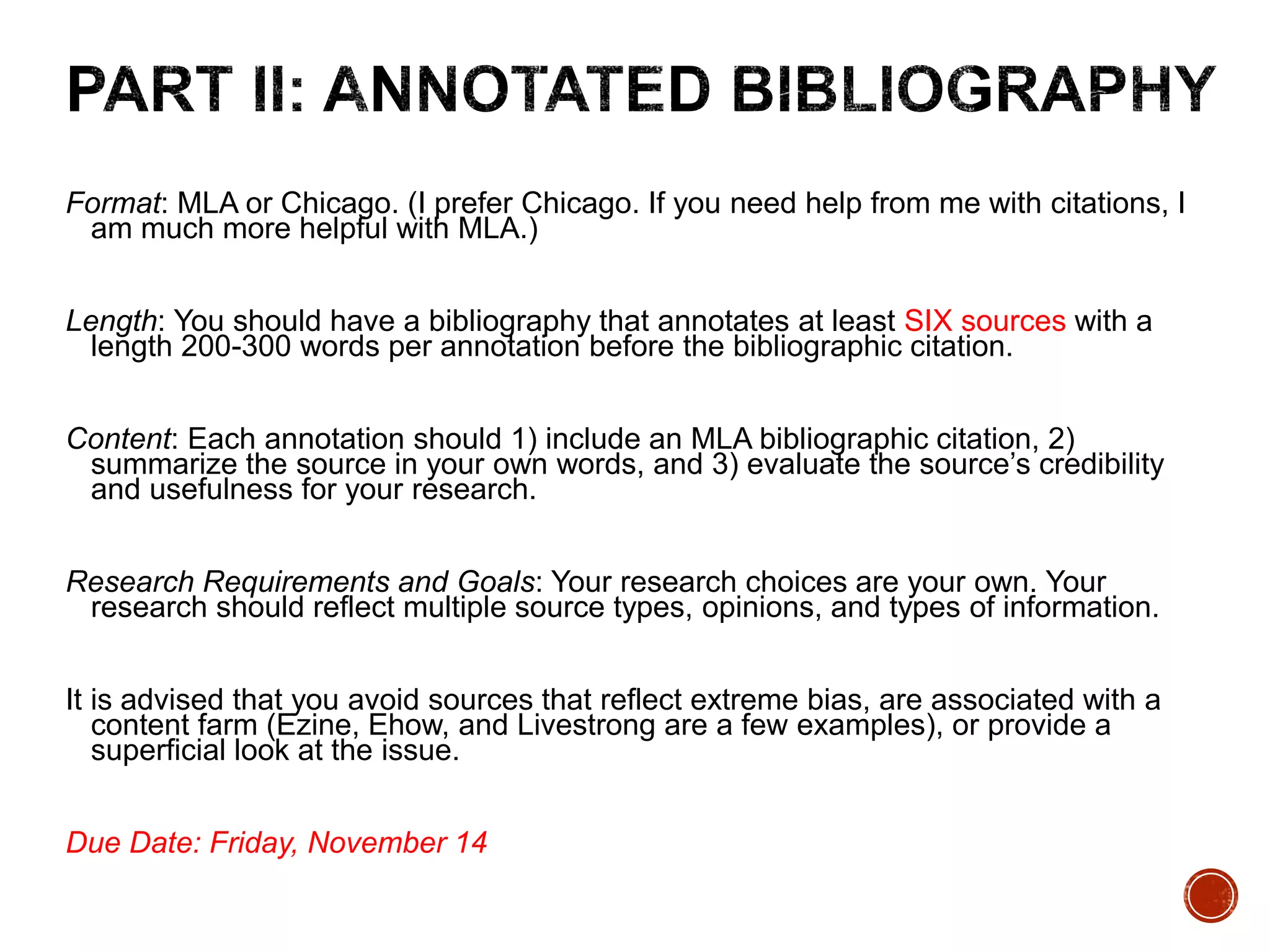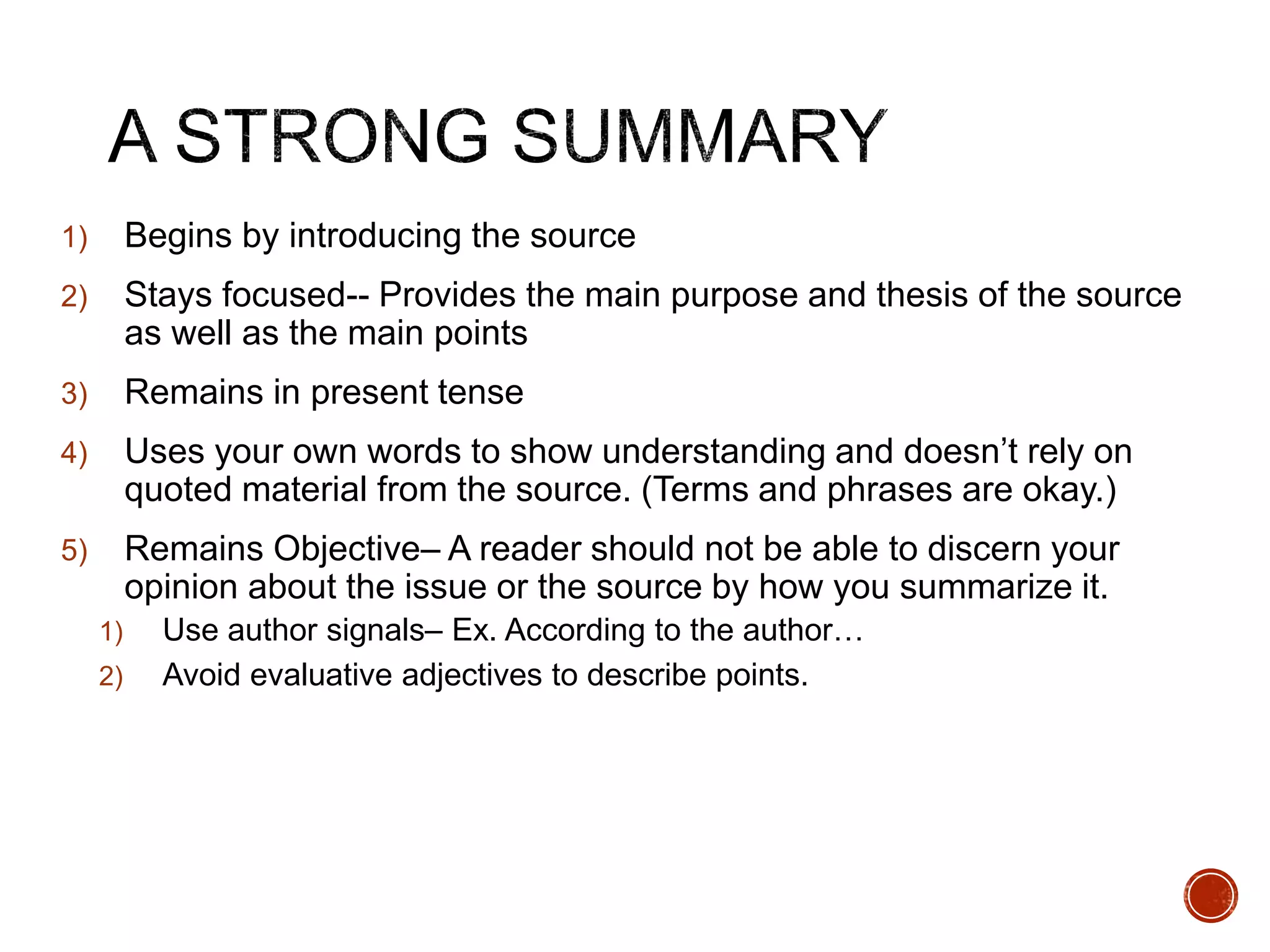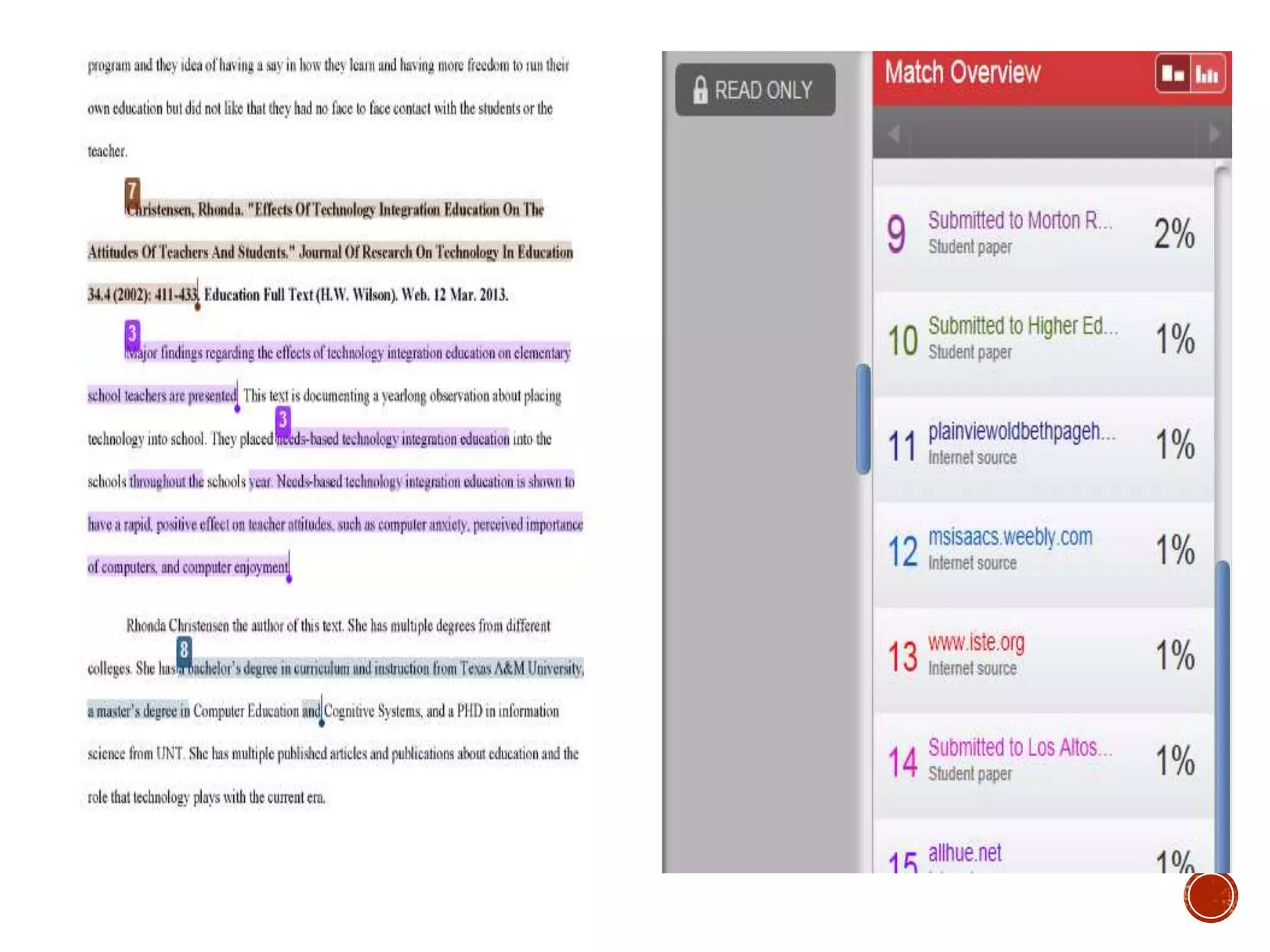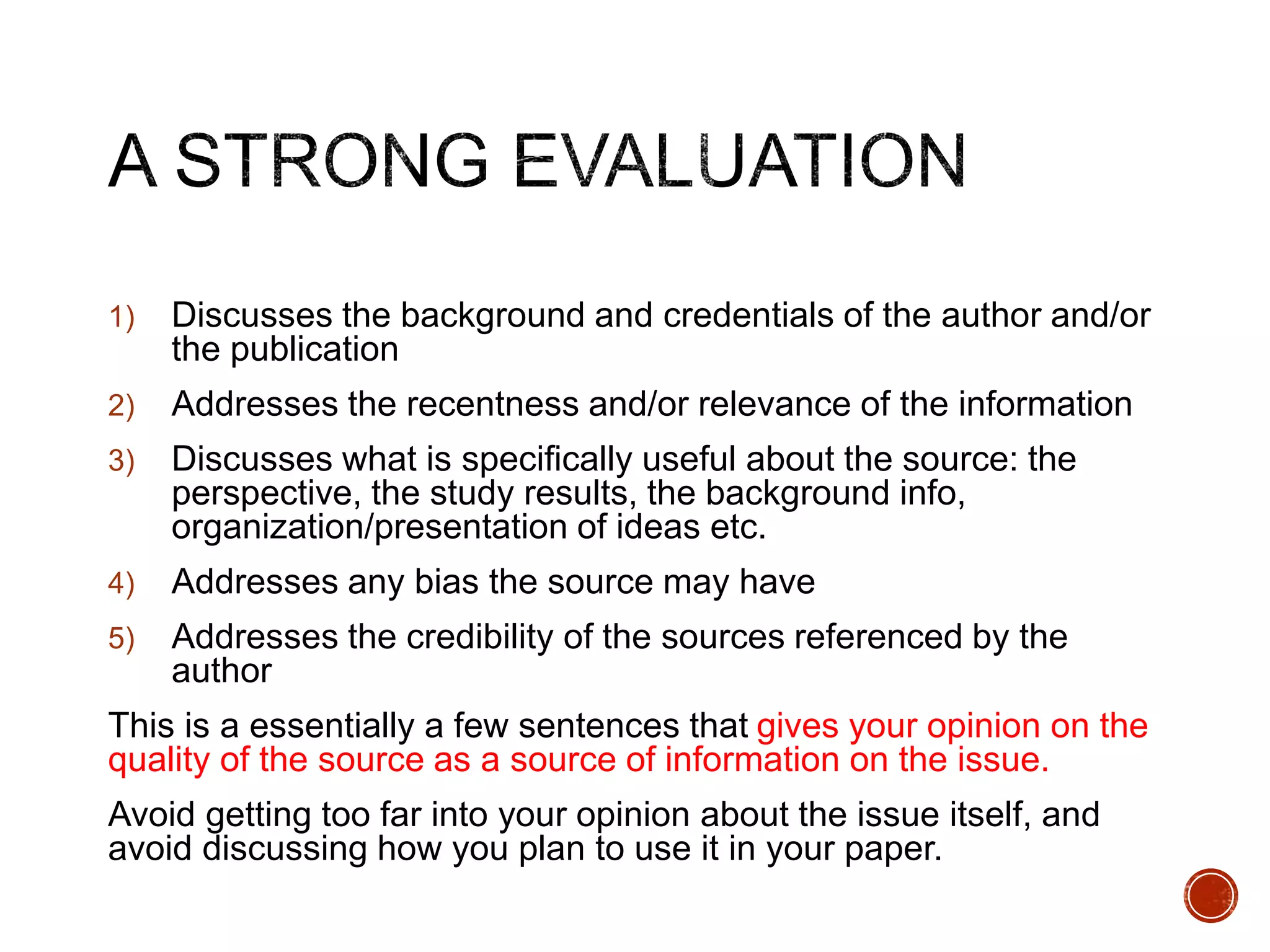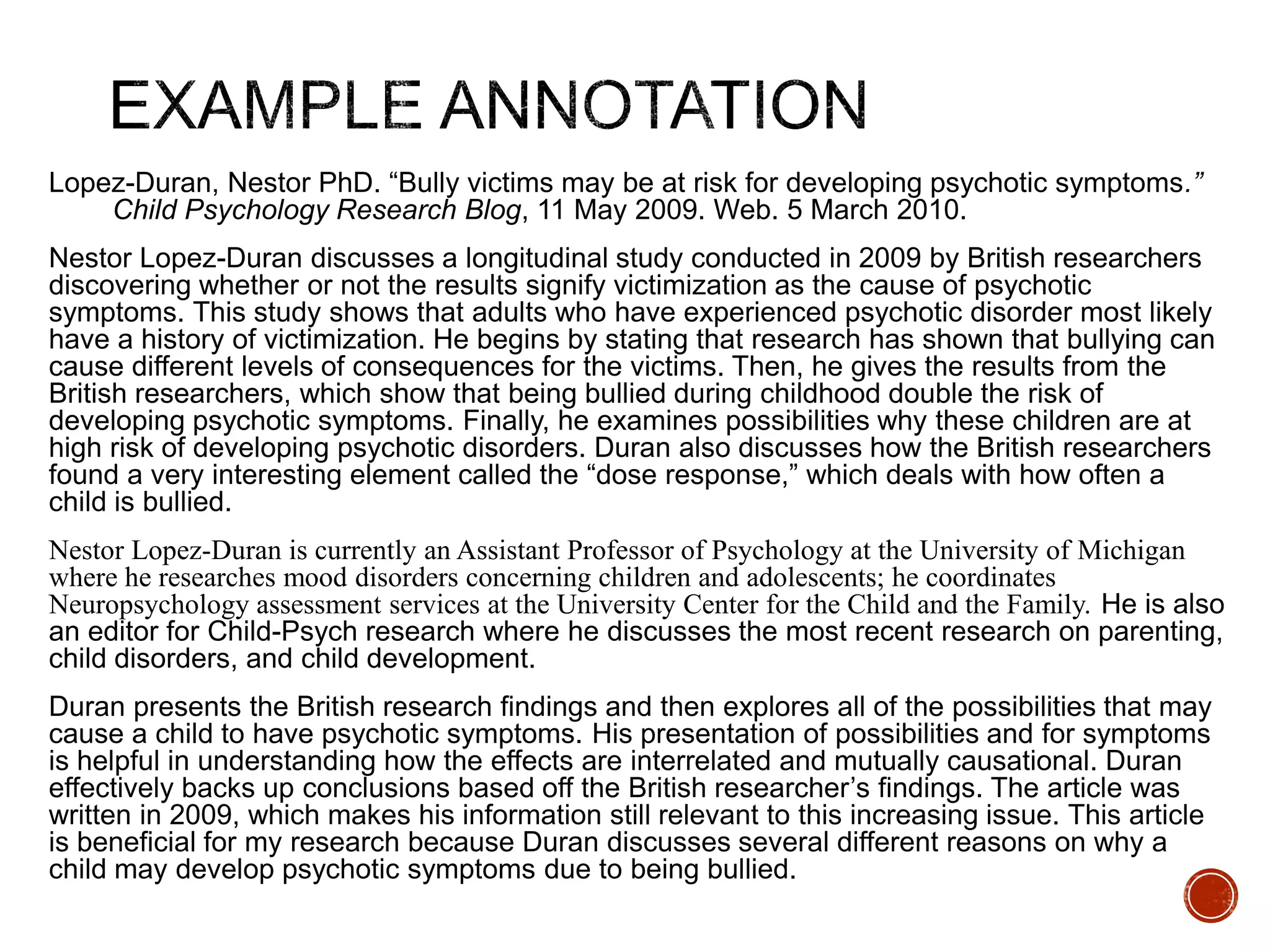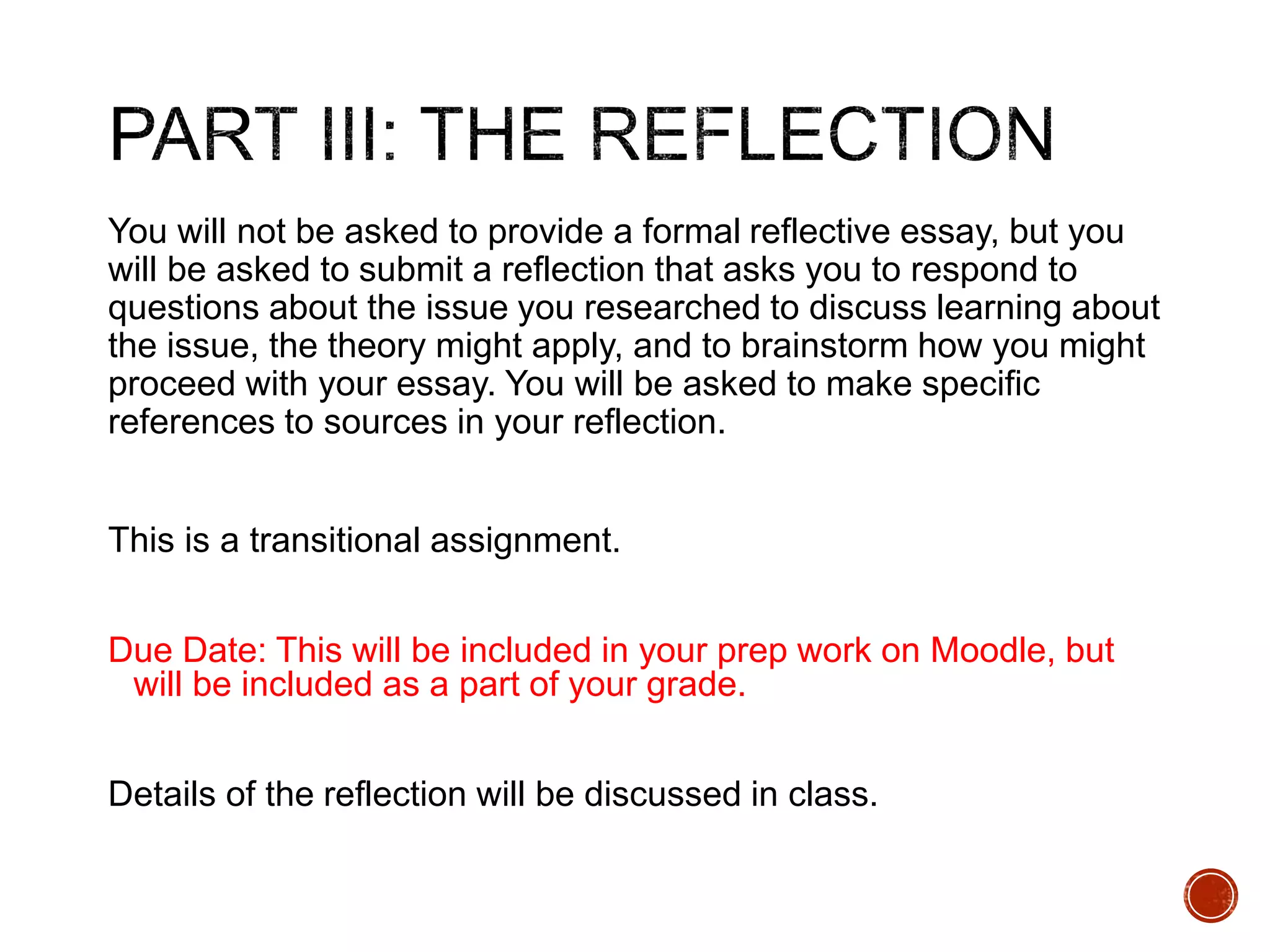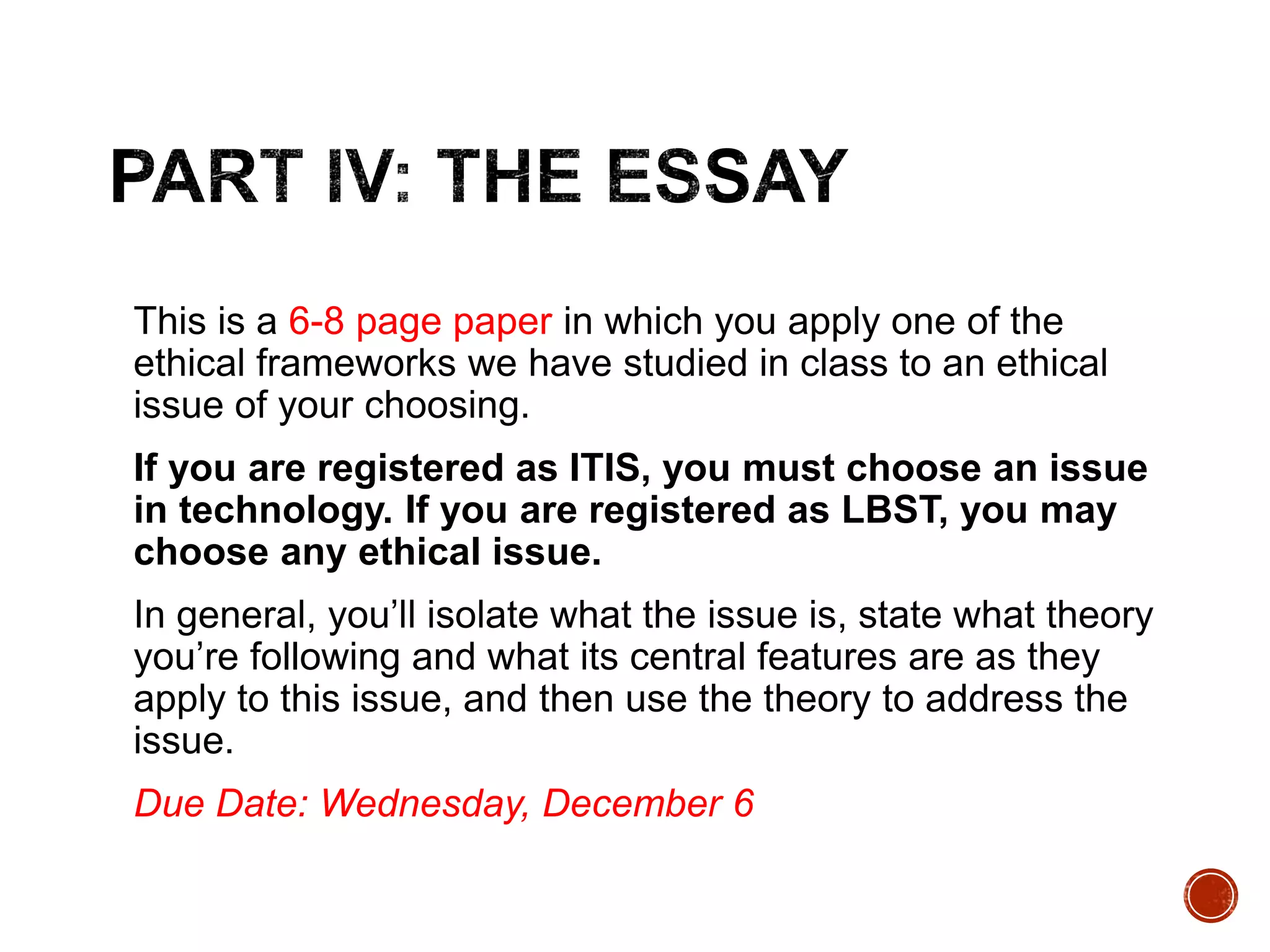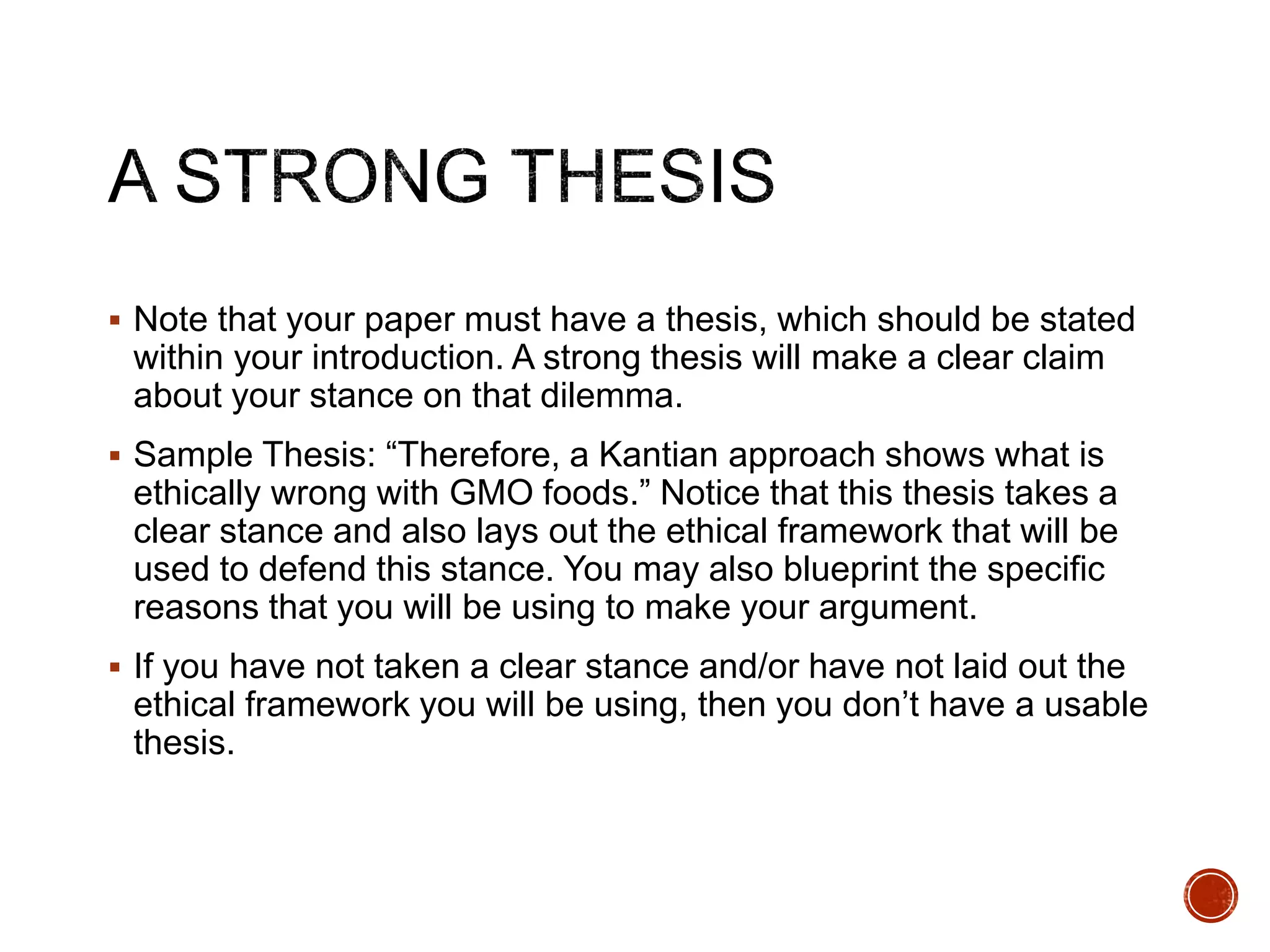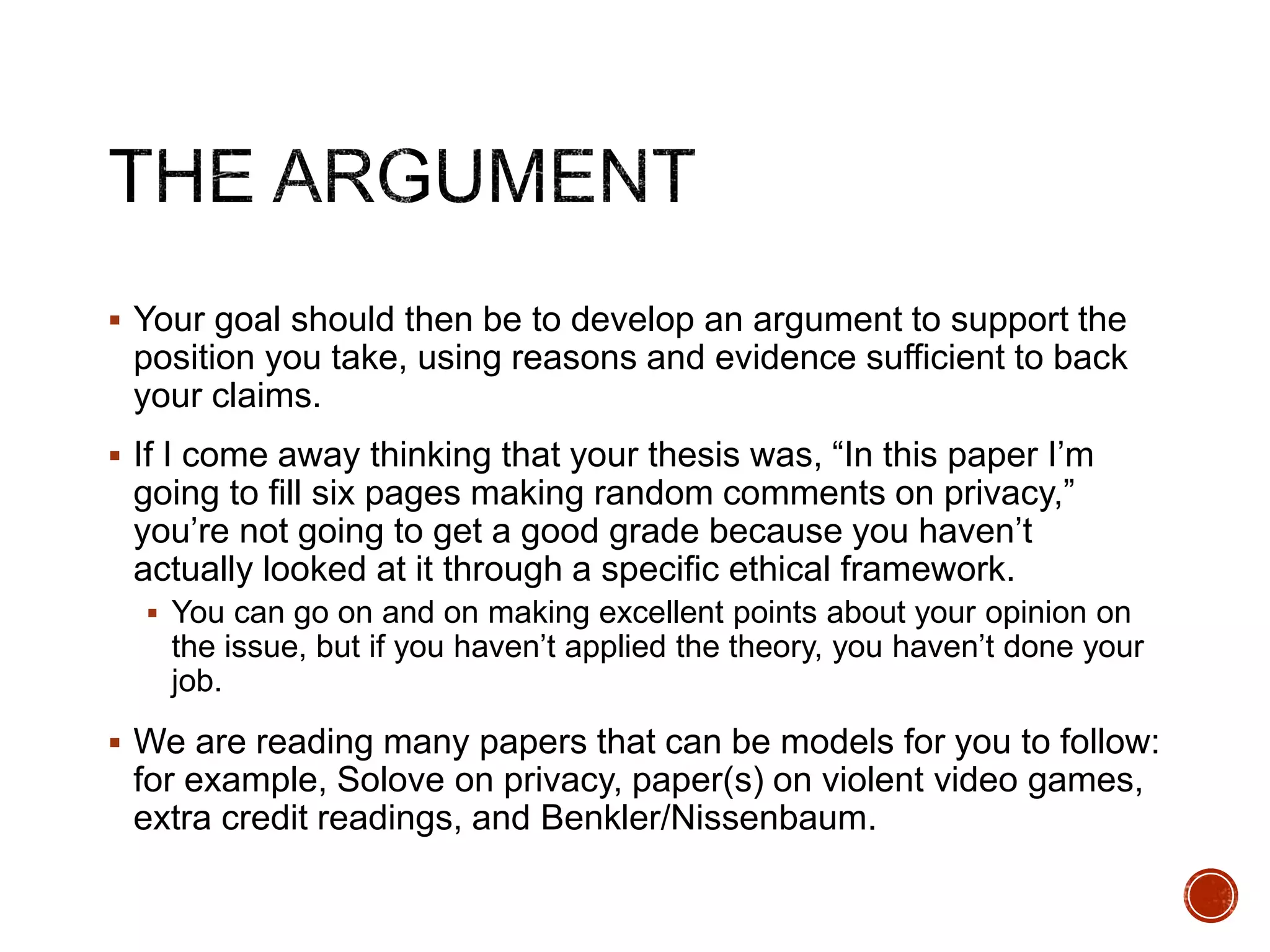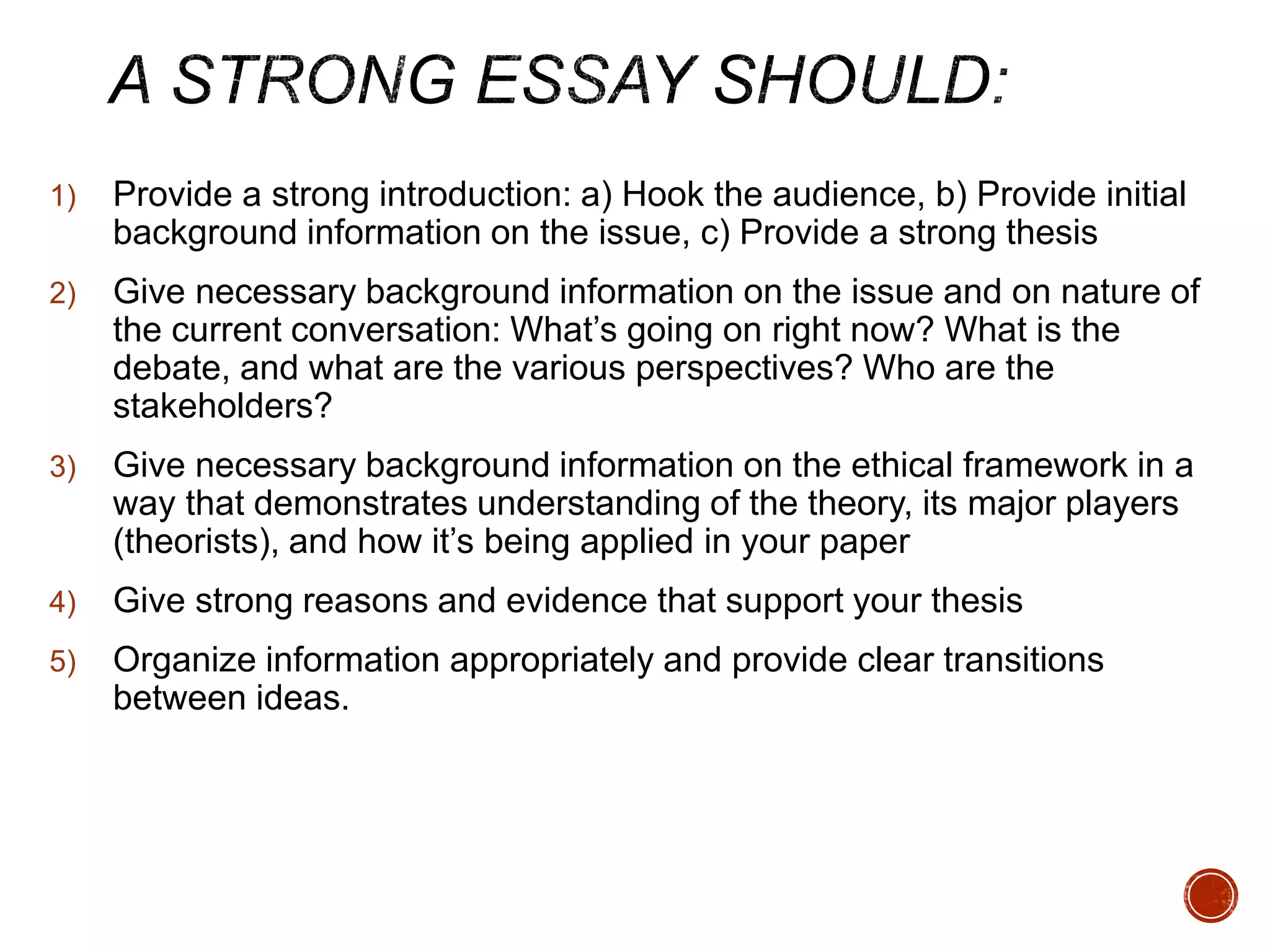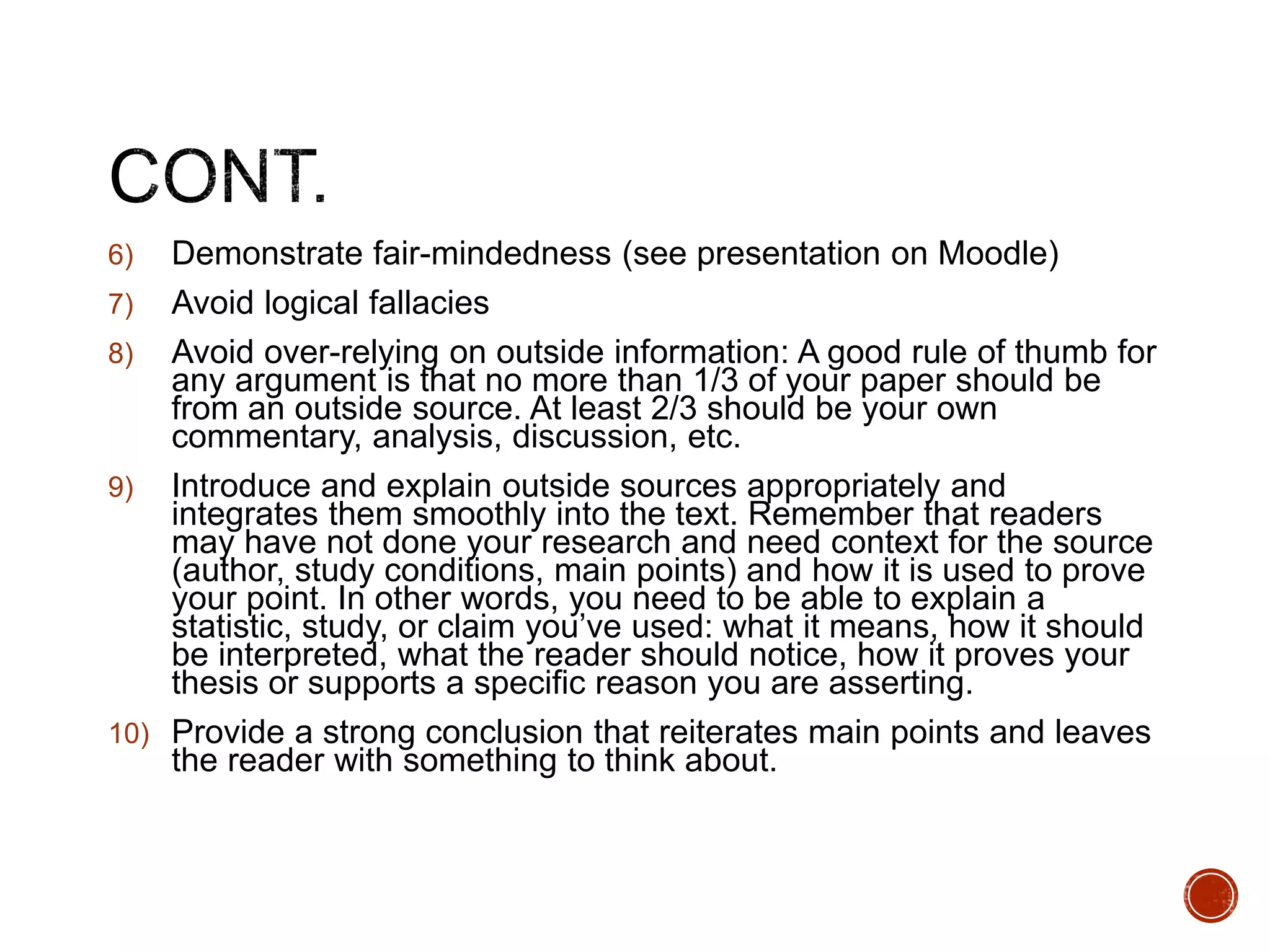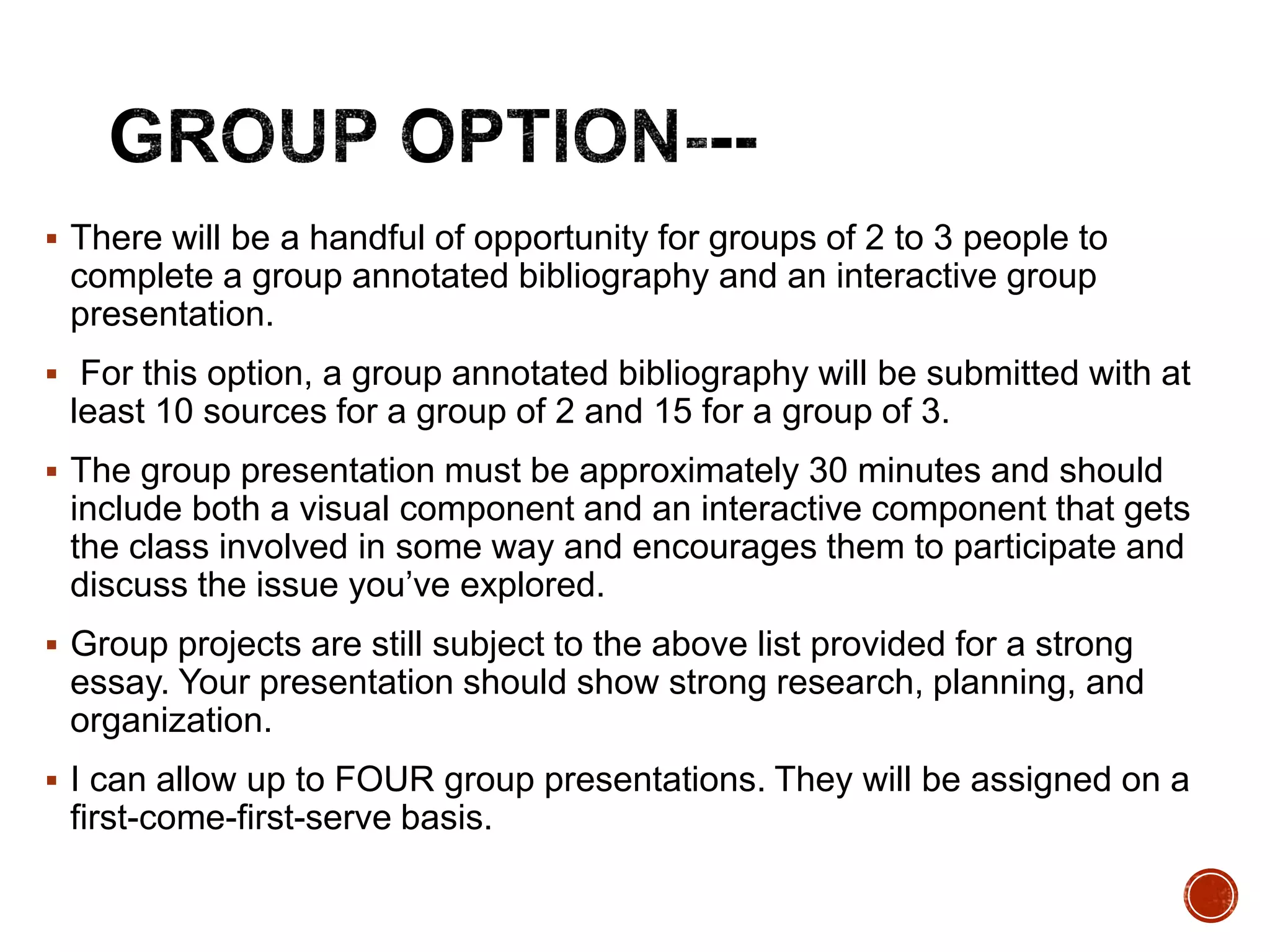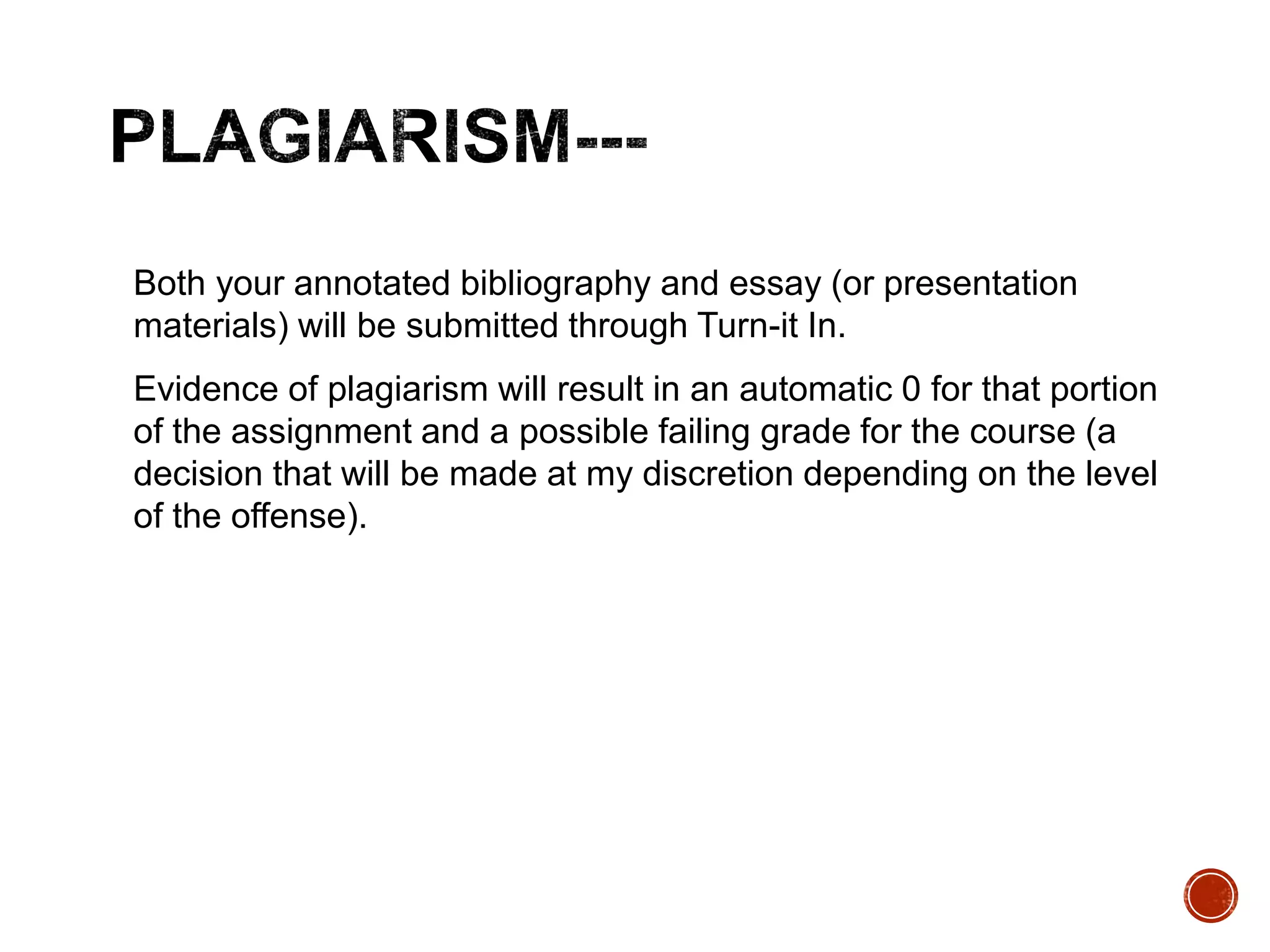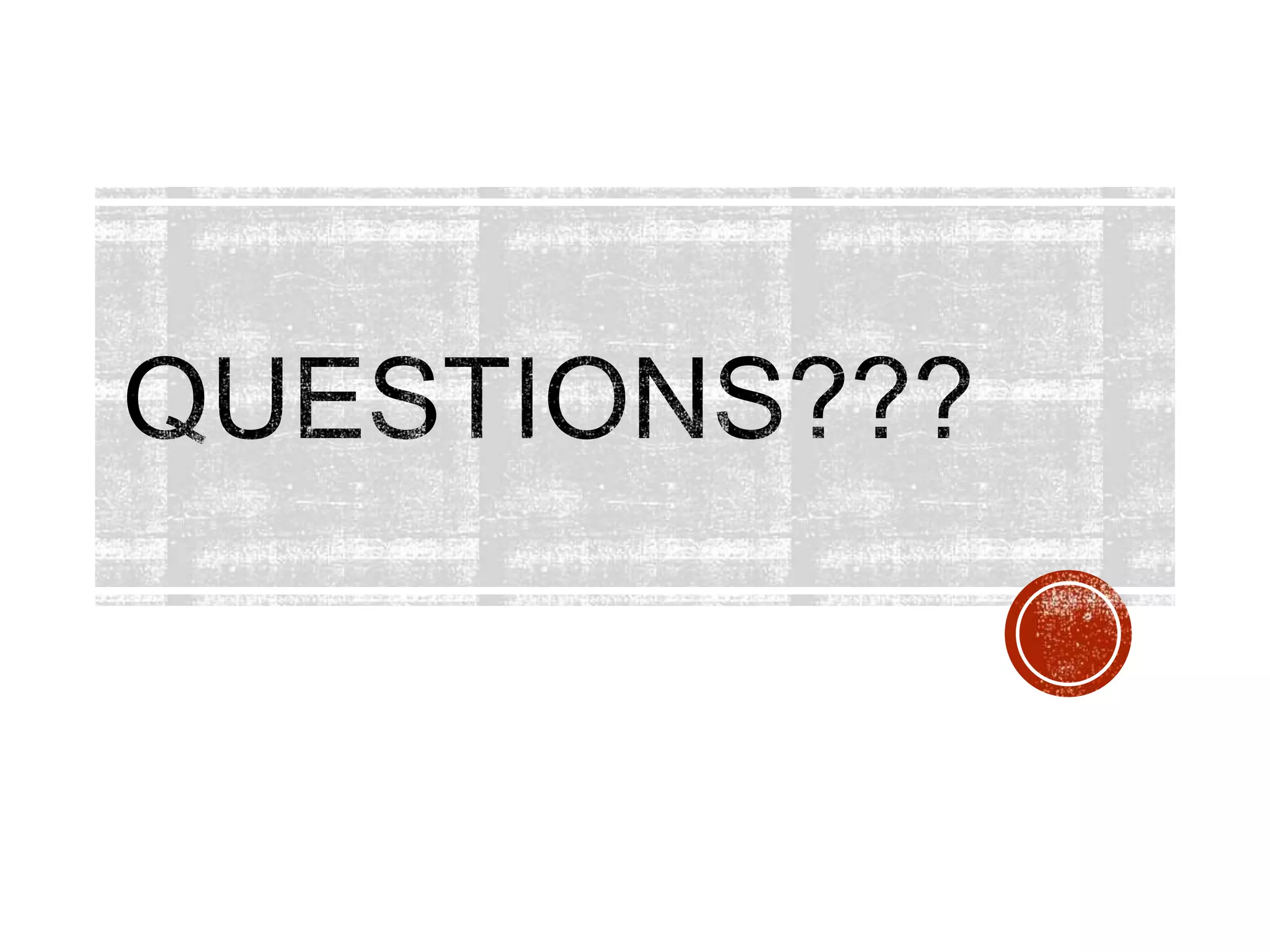This document outlines the requirements for an ethics assignment. Students will research and write about an ethical issue, applying an ethical framework. They must submit an annotated bibliography, reflection, and 6-8 page essay. The essay requires stating a clear thesis, using an ethical theory to analyze the issue while giving evidence and reasoning, and concluding strongly. Groups can also do an annotated bibliography and presentation, following the same standards of a strong argument and research. Plagiarism will result in penalties.
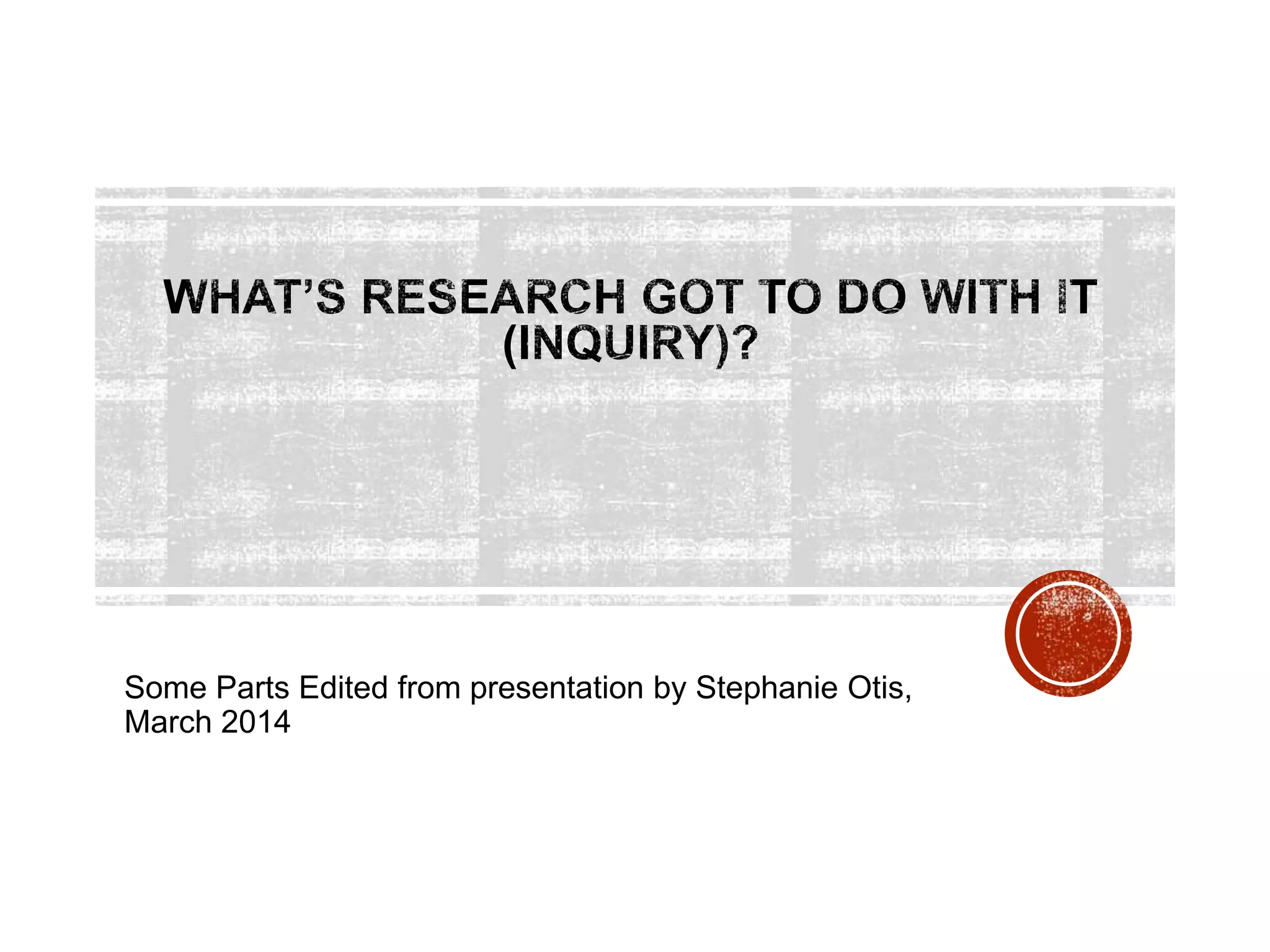
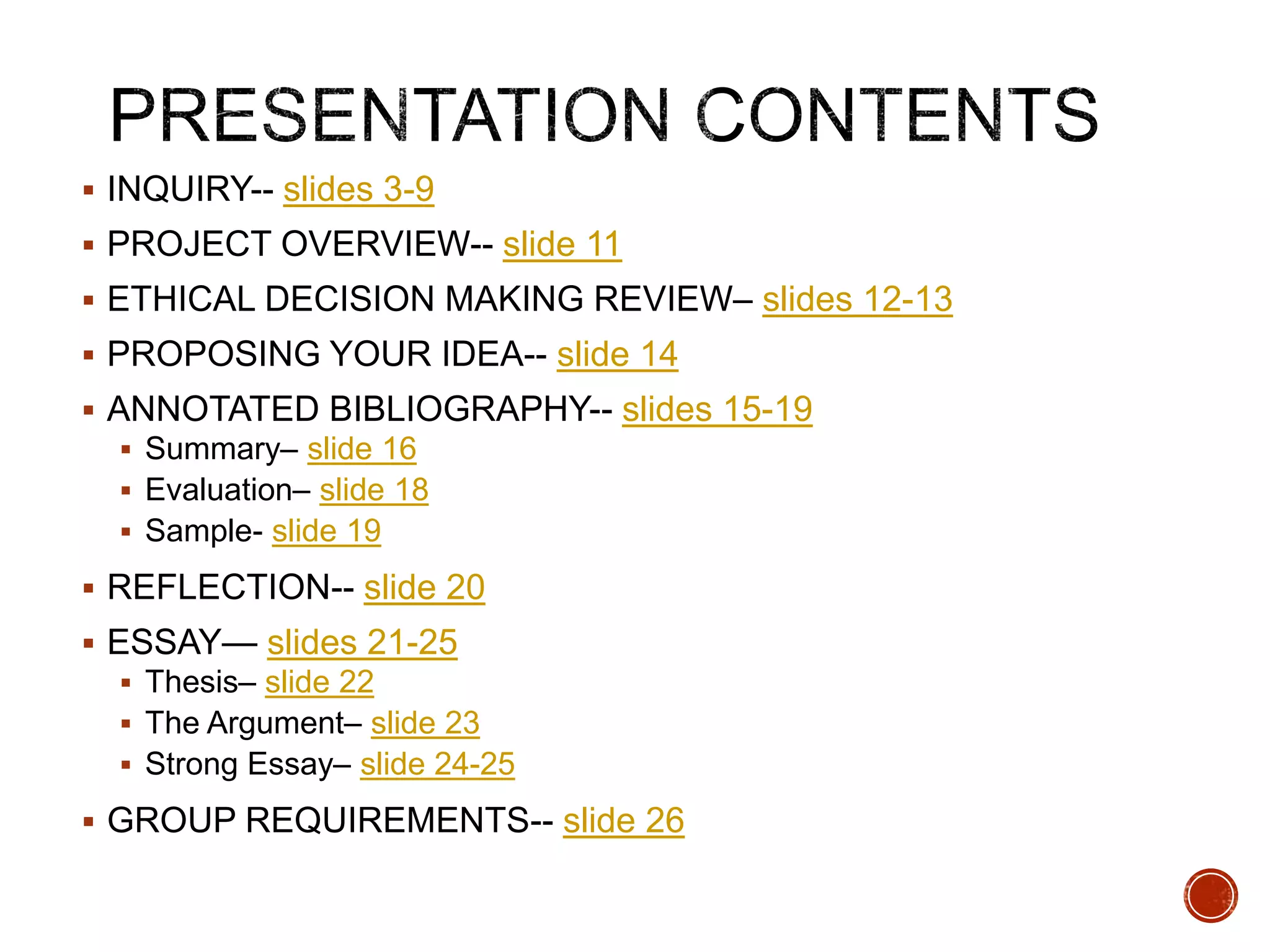
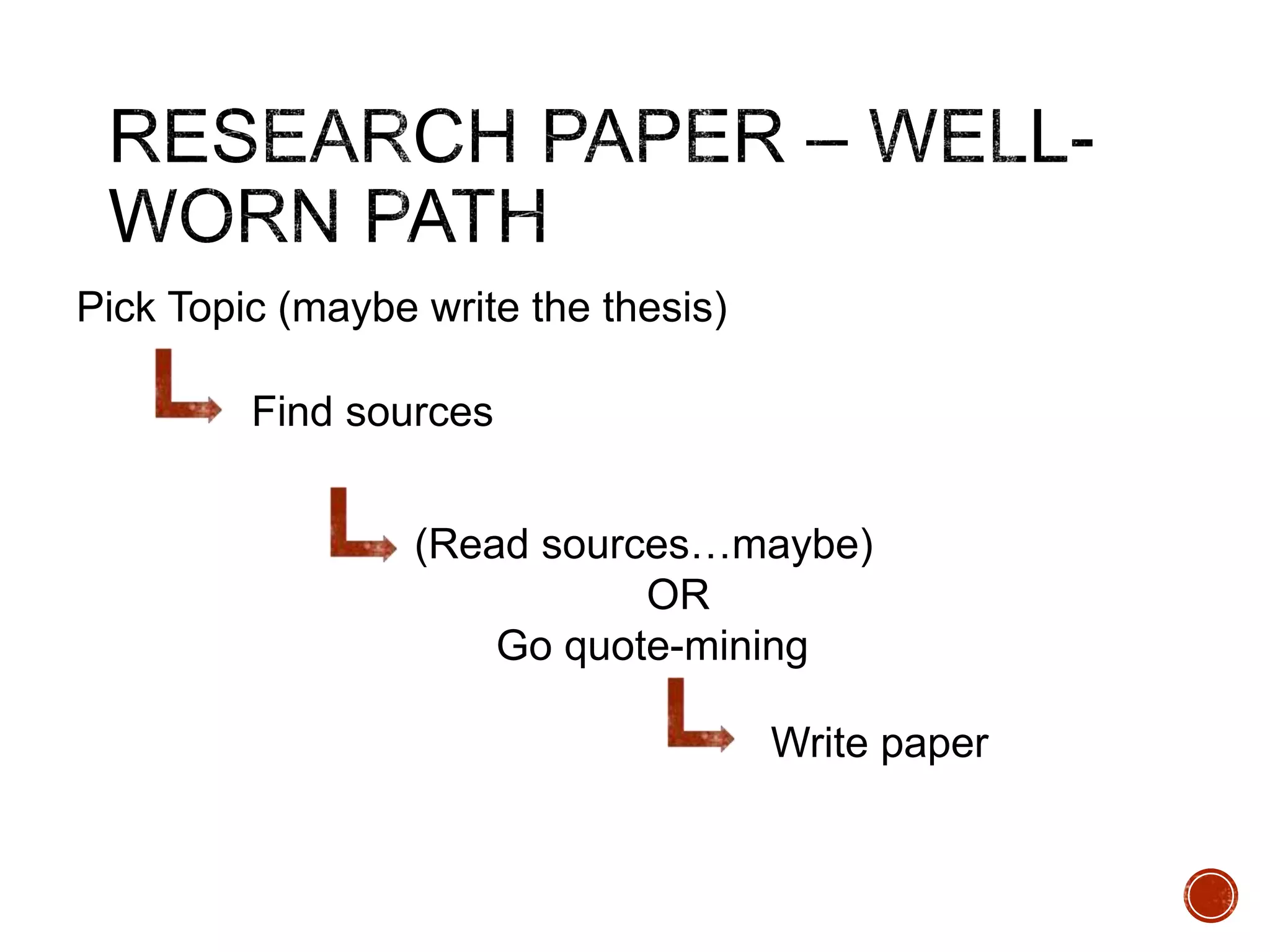
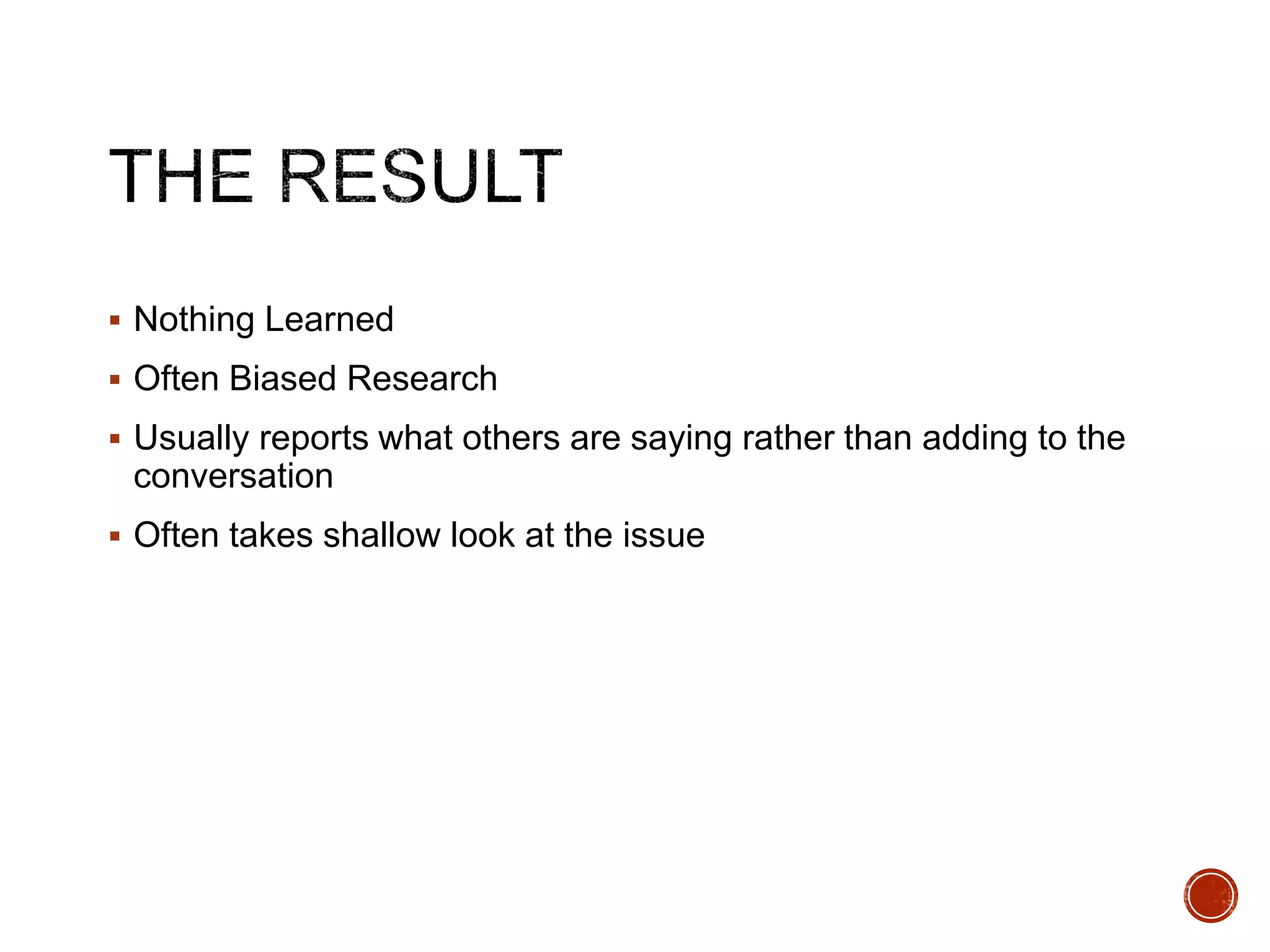
![Inquiry is different from research?
Inquiry is different from research in that you are not
hunting for answers to things, or trying to find
information to support or refute an idea (like a thesis
statement), but more of a state of mind where you are
open and willing to not only question, but follow where
those questions take you. It's a curiosity, a willingness to
trust that there is always something more to know,
and that the more we know, the more fully we can
understand something. [It is] also … leaving room for
there being multiple answers and perspectives, not just
one or a pro and a con. “](https://image.slidesharecdn.com/lbstinquiry1otis-141103181755-conversion-gate01/75/Inquiry-Project-Assignment-Presentation-5-2048.jpg)
